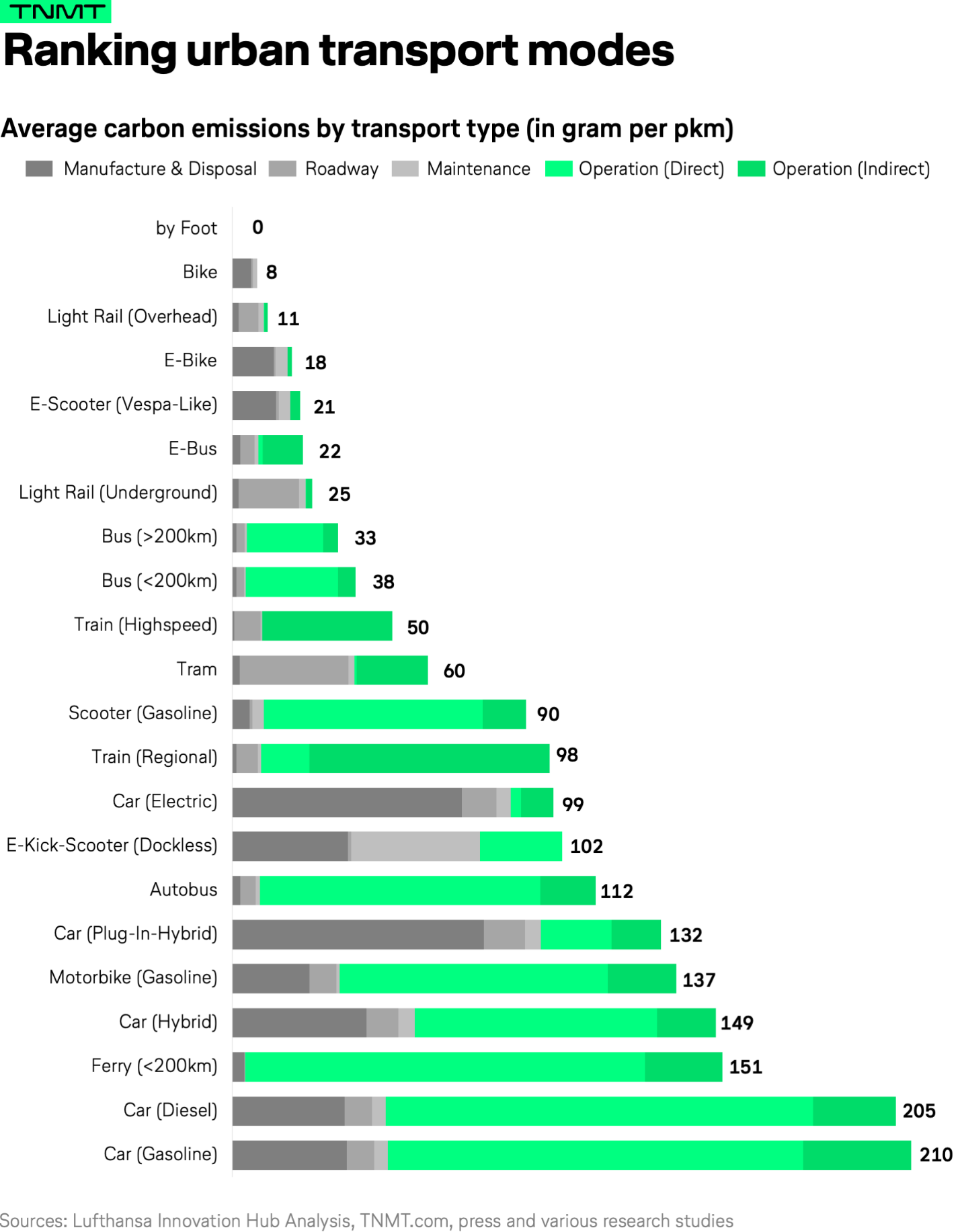
Transportation Choices: Ranking the Cleanest Ways to Travel
Human beings are good at comparing things in order to make informed choices. Recently, a transportation information technology group (TNMT) ranked vehicles to compare how much they pollute. They based their rankings on estimates of how many grams of carbon dioxide (CO2) a vehicle emits to move one person the distance of one kilometer (roughly a little over half a mile). Understanding these emission differences can help us travel efficiently without adding to air pollution and climate change.
The cleanest modes of transportation are walking and biking. Walking to and from the store will not only get you closer to your daily step goal, it will not contribute to air pollution. If you biked one kilometer to the store, your bike’s emissions score would be 8. Compare that to taking the bus, which has a score of 38.
Unfortunately, the way we built our cities over the last century means many of us do not live within walking or biking distance of our workplaces, schools, restaurants, theaters or sports arenas. This system of urban planning has given rise to our current dependency on motorized vehicles.
Emissions vary widely from one kind of vehicle to another. Ground transportation vehicles like buses and trains have lower emission scores than cars because they move many people at once, reducing their per-person CO2 emissions. However, there are two single-occupancy vehicle options that can emit fewer than 100 grams of CO2 to move you one kilometer: an electric road scooter (21) and an electric car (99).
No surprise: gasoline-powered vehicles rank near the bottom of the ratings. A motorcycle comes in at 137. A typical car emits over 200 grams of CO2 to move a person one kilometer. Cars also emit high levels of other pollutants such as carbon monoxide, nitrogen oxide and particulate matter into the air we breathe.
Having this ranking as a reference is an easy way to start making decisions about our transportation habits that can add up to important improvements to the health of not only our lungs but also our planet. Now that you have the comparison numbers, what changes will you make?
For more information, go to the TNMT report findings.

